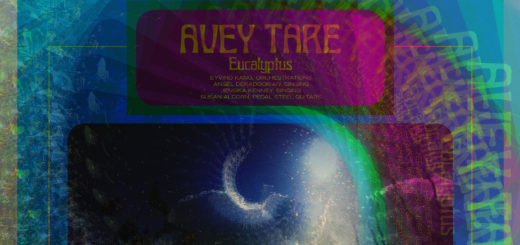S/T by Arca

Genre: Art Pop, Glitch Pop
Favorite Tracks: “Anoche,” “Saunter,” “Reverie,” “Castration,” “Sin Rumbo,” “Desafío”
Arca, born Alejandro Ghersi, is not known for his transparency. Brash sonic provocateur and underground style icon, certainly, but personal clarity has seldom come into full focus in his art. The Venezuelan producer’s musical and visual tone has remained consistently idiosyncratic, queer, and defiantly “other” throughout his young, whirlwind career. The harrowing effect of Ghersi’s aura is thanks in part to the macabre accompanying visual artistry and direction by frequent collaborator Jesse Kanda.
Ghersi’s first full length release as Arca, 2014’s XEN, was a record submerged in squelching synths, unpredictable song structure, and grotesque visuals of disfigured, gender fluid humanoids. 2015’s densely layered MUTANT further obscured the being behind the music with another litany of morbid electronic soundscapes. Though his efforts have remained dependably mind-bending, it remained uncertain if Ghersi would ever begin to crumble the grim wall he had cemented between himself and his listeners.
Thankfully, with his latest self-titled release, ARCA, Ghersi has begun to truly show himself, figuratively and literally.
Inspired by singing during a car ride with Björk, with whom he provided production to on her 2015 album VULNICURA, Ghersi incorporates his own vocals on ARCA. The results are a striking and immediate portrayal of a soul laid bare and a celebration of the power gleaned by embracing one’s inner turmoil full-force.
ARCA is steeped in melancholy and heartache, communicated via Ghersi’s heartrending operatic vocal delivery in his native Spanish. Album opener “Piel” sets a somber tone with patient grace. Its chilly synths and sensitive vocals form a hypnotizing space, teasing listeners itching for something more biting. Fortunately, the LP divides its attention between crestfallen dirges and apocalyptic anthems skillfully for the most part.
“Piel” transitions into the similarly mournful “Anoche,” though the latter picks up the tempo with shifting, shadowy synths that complement Ghersi’s raw tone in an engaging manner. The album starts to truly shine when Ghersi bares his teeth on tracks such as the demented church organ-like “Saunter,” or the melodramatic “Reverie.” The latter is peak-Arca bombast: haunting, emotionally-varied falsetto married to demanding, combusting electronics. “Reverie” clues listeners into Ghersi’s emotional versatility: fragile, yet in complete control of his distorted universe.
Though ARCA may benefit from Ghersi’s newfound voice, it is not without the producer’s trademark pure instrumentals. “Castration” serves as a wild, stuttering interlude, while “Whip,” true its name, layers crisp whipping sound effects amongst distorted droning. In keeping with the self-flagellatory and simultaneously commanding dual environment of ARCA, it’s a risk that pays off. However, instrumental cut “Urchin,” while an interesting listen, doesn’t add much thematic variance to the LP as a whole, sounding like a less adventurous version of “Castration.”
“Desafío” is a surprising foray for Ghersi into pop song structure with satisfying returns. Its allure is reminiscent of the sound he helped craft for alternative R&B starlet FKA twigs. The track’s grand, distant production paired with Ghersi’s assured delivery hint at a more single-friendly, wider appeal for Arca. The thought of such a fate is not an unwelcome one.
Undeniably, however, the album’s emotional centerpiece is the bone-chilling “Sin Rumbo,” a harrowing, stupefying song of heartbreak that positions Ghersi’s operatic falsetto on full display. Thematically analogous moments, such as “Coraje” or “Miel,” strike a similar chord, but fail to engage as strongly due to more forgettable production and fairly listless vocals. Nonetheless, even at ARCA’s weakest moments, Ghersi emanates intrigue.
ARCA is a landmark record for Alejandro Ghersi. At its core, the album is an adept dive into the murky, debilitating swamp of heartbreak. In exploring through newfound vocal territory, Ghersi beckons listeners a peek into to his inner person. His choice is no doubt a courageous act for a musician that has enraptured fans with his gothic, inhuman mystique for a majority of his career. Despite the record’s occasionally inconsistent moments, Ghersi has once again found his voice on ARCA. One can scarcely imagine what form Arca will mutate into next.
Verdict: Recommend



